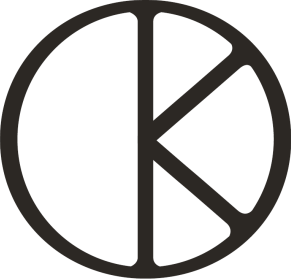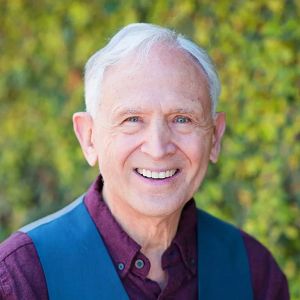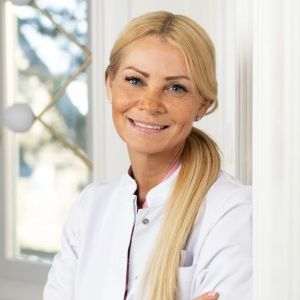








Kusnacht Practice
Verified Center
This provider's information has been quality-checked by Recovery.com's Research Team for accuracy and completeness, including center verification through appropriate third-party organizations.
Treatment Focus
This center treats substance use disorders and mental health conditions. You'll receive individualized care catered to your unique situation and diagnosis, learn practical skills for recovery, and make new connections in a restorative environment.
Primary Level of Care
Offering intensive care with 24/7 monitoring, residential treatment is typically 30 days and can cover multiple levels of care. Length can range from 14 to 90 days typically.
Treatment Focus
This center treats substance use disorders and mental health conditions. You'll receive individualized care catered to your unique situation and diagnosis, learn practical skills for recovery, and make new connections in a restorative environment.
Primary Level of Care
Offering intensive care with 24/7 monitoring, residential treatment is typically 30 days and can cover multiple levels of care. Length can range from 14 to 90 days typically.
Private Pay
You pay directly for treatment out of pocket. This approach can offer enhanced privacy and flexibility, without involving insurance. Exact costs vary based on program and length of stay. Contact the center for specific details.
Kusnacht Practice
Kusnacht Practice
About Kusnacht Practice
The Kusnacht Practice operates exclusive centers in Zurich and Geneva, establishing itself as a leader in treating dependencies and psychological disorders. The highly modern centre combines the highest Swiss-quality standards with an internationally renowned team of doctors, psychiatrists, and mental health experts.
They believe that health and well-being are precious and irreplaceable foundations for quality of life. To restore the fragile balance between body, mind, and soul, the world-renowned The Kusnacht Practice relies on truly bespoke, tailor-made treatment programmes.
Bespoke Mental Healthcare and Exclusive Retreats
The Kusnacht Practice specialises in treating various disorders, including addiction, depression, trauma, burnout, anxiety, eating disorders, and chronic pain management. It offers programmes such as its innovative BIO-R®, or Biomolecular Restoration, a highly effective, personalised method for detoxification, weight reduction, and anti-aging. The Kusnacht Practice provides completely confidential care for each client with the Swiss 5-star standard of luxury.
To fit the unique needs of each client, The Kusnacht Practice offers various retreats and programmes with tailored care. They offer a Leaders Retreat for executives and VIPs, Ladies Retreat, Personalised Family Treatment, Body and Mind Booster Stay, and more.
Innovative Healing Methods
The Kusnacht Practice incorporates cutting-edge technology, industry-leading expertise, and luxurious accommodations to optimise its tailored treatment approach. Depending on their diagnoses, clients receive 6-8 individual sessions a day in their private residence for a minimum stay of 6 weeks.
Some of their exclusive treatments include cognitive behavioural therapy (CBT), eye movement desensitisation and reprocessing (EMDR), family therapy, positive psychology, biofeedback and neurofeedback. New recovery methods like magnetic stimulation (rTMS, tDCS), biomolecular restoration (BIO-R®), and intermittent hypoxia hyperoxia therapy (IHHT) create well-rounded treatment plans. Somatic experiencing, mindfulness work, hypnotherapy, and limbic chair use encapsulate a holistic approach. Supporting long-term wellbeing, The Kusnacht Practice offers an extensive Continuing Care Programme with follow-up therapy sessions, support meetings, and recovery coaching.
World-Class Accommodations
Throughout their stay at The Kusnacht Practice, clients reside in their own private, 5-star villa overlooking the glistening waters of Lake Zurich—an idyllic setting to bolster mental wellbeing. High-end furnishings, grand artwork, fine dining, and breathtaking views evoke exclusivity and sophistication, putting clients at ease and allowing them to focus on their treatments. 24/7 concierge services provide the comforts of home during treatment, and a live-in counsellor offers support and discretion, giving clients space to relax. When appropriate, The Kusnacht Practice can make arrangements for loved ones to visit.
Highlights from the Center
Highlights
These highlights are provided by and paid for by the center.
Concierge Approach
One Client at a Time
Perfect for UHNWI
Private Villa
Center Overview
Treatment Focus
This center treats substance use disorders and mental health conditions. You'll receive individualized care catered to your unique situation and diagnosis, learn practical skills for recovery, and make new connections in a restorative environment.

Kusnacht Practice
Pricing and Program Length
Estimated Center Costs
The cost listed here (starting at CHF 117,300/week), is an estimate of program cost. Center price can vary based on program and length of stay. Contact the center for more information. Recovery.com strives for price transparency so you can make an informed decision.




Recovery.com Verified Listing
Recovery.com verified that the name, location, contact information and license to operate for this treatment provider are valid and up-to-date.

Licensed by Canton of Zurich
Recovery.com is an independent, third-party mental health resource. Verification does not imply endorsement and does not guarantee the quality of treatment services.
Meet Your Care Team

Dr. med. vet. Antoinette Sarasin Gianduzzo
Director of Biomolecular Restoration (BIO-R®), Nutrition & Lifestyle, Member of Board of Directors

Dr. Prof. Dr. Med. Georg Schulthess
Chief Medical Officer

Elena Kusnezowa
Psychiatrist and Psychotherapist
MD

Melissa Nobile
Psychologist and Clinical Operations Manager Geneva

Dr. med. Pierre Sindelar
Medical Director Geneva

Peter A Levine
Psychotherapist
Ph.D.

Dr. med. univ. Anne-Cathérine Widlowski
Specialist in Internal Medicine

Dr. med. László Ürögi
Head of Psychiatry, Psychotherapy & Relapse Prevention

Dr. med. univ. Wolfram Gmeiner
Senior Lead Psychiatrist

Prof. Dr. med. Alfred Mahr
Specialist Internal Medicine

Dr. med. Verena Immer
Doctor in Integrative & Anti-Aging Medicine

Dr. med. Jean-Marc Sobczyk
Doctor in Integrative & Anti-Aging Medicine

Jurelnarde (Jojo) Abellanosa
Medical Nurse

Nathalie Karasek
Medical Nurse

Melissa Wachholz
Medical Nurse

Julia Visser
Medical Nurse

Saskia Groeneveld
Medical Nurse

Dean Gustar
Relapse Prevention Specialist

Dr. phil. Olivia Bolt
Senior Lead Psychotherapist

Nika Blecich
Neuromodulation Manager

Margje de Rooij
Relapse Prevention Specialist

Dr. sc. med. Martin Zozman
Head of Nursing and Clinical Quality
Your Care Options
Specializations
Alcohol
Using alcohol as a coping mechanism, or drinking excessively throughout the week, signals an alcohol use disorder.
Detox
Detox fully and safely removes toxic substances from the body, allowing the next steps in treatment to begin with a clean slate.
Burnout
Burnout entails mental and physical exhaustion, and leads to a severe lack of fulfillment. This condition is often caused by overwork.
Co-Occurring Disorders
A person with multiple mental health diagnoses, such as addiction and depression, has co-occurring disorders also called dual diagnosis.
Eating Disorders
An eating disorder is a long-term pattern of unhealthy behavior relating to food. Most people with eating disorders have a distorted self-image.
Executives
Executive treatment programs typically directly support the needs of people who manage businesses and may provide flexible schedules and office space to allow work during treatment.
Trauma
Some traumatic events are so disturbing that they cause long-term mental health problems. Those ongoing issues can also be referred to as "trauma."
Who We Treat
Older Adults
Addiction and mental health treatment caters to adults 55+ and the age-specific challenges that can come with recovery, wellness, and overall happiness.
Adolescents
Teens receive the treatment they need for mental health disorders and addiction, with the added support of educational and vocational services.
Executives
Executive treatment programs typically directly support the needs of people who manage businesses and may provide flexible schedules and office space to allow work during treatment.
Young Adults
Emerging adults ages 18-25 receive treatment catered to the unique challenges of early adulthood, like college, risky behaviors, and vocational struggles.
Professionals
Busy, high-ranking professionals get the personalized treatment they need with greater accommodations for work, privacy, and outside communication.
Treatment Services
Detox
Detox fully and safely removes toxic substances from the body, allowing the next steps in treatment to begin with a clean slate.
Intensive Family Program
Some rehabs offer intensive programs for loved ones. Group and individual therapy sessions help everyone heal, and improve family dynamics.
Intensive Outpatient Program
In an IOP, patients live at home or a sober living, but attend treatment typically 9-15 hours a week. Most programs include talk therapy, support groups, and other methods.
Licensed Primary Mental Health
Some primary care providers offer mental health diagnosis and treatment. This can prevent patients from developing more serious conditions.
Outpatient
During outpatient rehab, patients attend a structured treatment program while continuing to live at home.
Residential
In a residential rehab program, patients live onsite, with access to daily treatment and 24-hour care. An average stay is 30-90 days.
Retreat
These curated experiences promote physical, mental, and spiritual well-being, and provide a break from the busy pace of daily life.
Approaches
Evidence-Based
A combination of scientifically rooted therapies and treatments make up evidence-based care, defined by their measured and proven results.
Holistic
A non-medicinal, wellness-focused approach that aims to align the mind, body, and spirit for deep and lasting healing.
One-to-One
Patients work with their treatment team members on a 1-on-1 basis, keeping their journey and treatment fully private and personalized.
Personalized Treatment
The specific needs, histories, and conditions of individual patients receive personalized, highly relevant care throughout their recovery journey.
Therapies
1-on-1 Counseling
Patient and therapist meet 1-on-1 to work through difficult emotions and behavioral challenges in a personal, private setting.
Trauma-Specific Therapy
This form of talk therapy addresses any childhood trauma at the root of a patient's current diagnosis.
Transcranial Magnetic Stimulation
Localized magnetic pulses stimulate areas of the brain to increase brain activity and reduce abnormal functions.
Mindfulness Therapy
This ancient practice can be mental, emotional, and even spiritual. In meditation, you focus your attention on the present moment without judgement.
Weight Loss
Programming designed to promote sustainable health and wellness through personalized nutrition and fitness plans.
Eye Movement Therapy (EMDR)
Lateral, guided eye movements help reduce the emotional reactions of retelling and reprocessing trauma, allowing intense feelings to dissipate.
Conditions We Treat
Pornography Addiction
A person with a porn addiction is emotionally dependent on pornography to the point that it interferes with their daily life and relationships.
Schizophrenia
Schizophrenia is a serious mental health condition that causes hallucinations, delusions, and disordered thinking.
Personality Disorders
Personality disorders destabilize the way a person thinks, feels, and behaves. If untreated, they can undermine relationships and lead to severe distress.
ADHD, ADD
ADHD is a common mental health condition caused by dopamine imbalance. Common symptoms include inattention, hyperactivitiy, and impulsivity.
Anger
Although anger itself isn't a disorder, it can get out of hand. If this feeling interferes with your relationships and daily functioning, treatment can help.
Anxiety
Anxiety is a common mental health condition that can include excessive worry, panic attacks, physical tension, and increased blood pressure.
Bipolar
This mental health condition is characterized by extreme mood swings between depression, mania, and remission.
Burnout
Burnout entails mental and physical exhaustion, and leads to a severe lack of fulfillment. This condition is often caused by overwork.
Substances We Treat
Alcohol
Using alcohol as a coping mechanism, or drinking excessively throughout the week, signals an alcohol use disorder.
Benzodiazepines
Benzodiazepines are prescribed to treat anxiety and sleep issues. They are highly habit forming, and their abuse can cause mood changes and poor judgement.
Chronic Relapse
Consistent relapse occurs repeatedly, after partial recovery from addiction. This condition requires long-term treatment.
Co-Occurring Disorders
A person with multiple mental health diagnoses, such as addiction and depression, has co-occurring disorders also called dual diagnosis.
Cocaine
Cocaine is a stimulant with euphoric effects. Agitation, muscle ticks, psychosis, and heart issues are common symptoms of cocaine abuse.
Drug Addiction
Drug addiction is the excessive and repetitive use of substances, despite harmful consequences to a person's life, health, and relationships.
Ecstasy
Ecstasy is a stimulant that causes intense euphoria and heightened awareness. Abuse of this drug can trigger depression, insomnia, and memory problems.
Heroin
Heroin is a highly addictive and illegal opioid. It can cause insomnia, collapsed veins, heart issues, and additional mental health issues.
Psychedelics
Hallucinogenic drugs—like LSD—cause euphoria and increased sensory experiences. When abused, they can lead to depression and psychosis.
Languages
Aftercare
Care Designed for Your Needs
Personal Amenities
Amenities
Special Considerations
Executive Program
Addiction and mental health treatment for executives typically involves high discretion, greater technology access, and more private, 1-on-1 care.
Activities
Off-Site Activities
Learn More About the Center
Biomolecular Restoration
As one of their 4 treatment pillars, discover how biomolecular restoration realigns the body.
Unique 360 Approach
Learn more about their integral treatment elements.
Hospitality Services
Discover the comforts of home with their bespoke services and accommodations.
International Interventions
Learn more about how The Kusnacht Practice can help families with early intervention.





